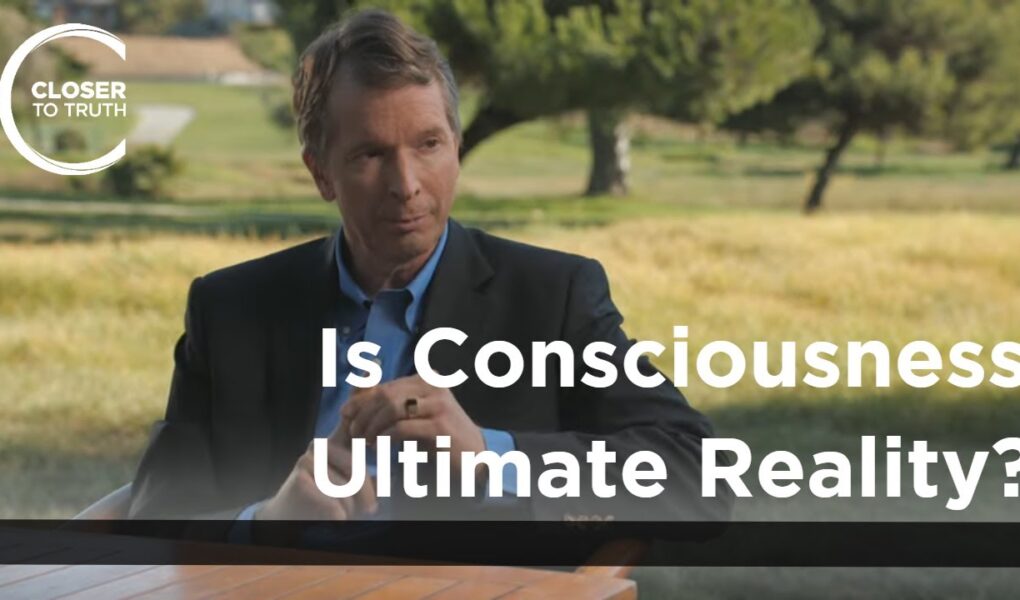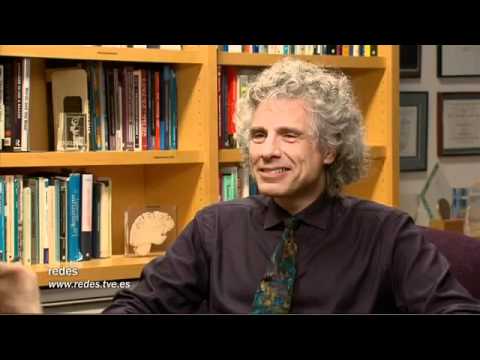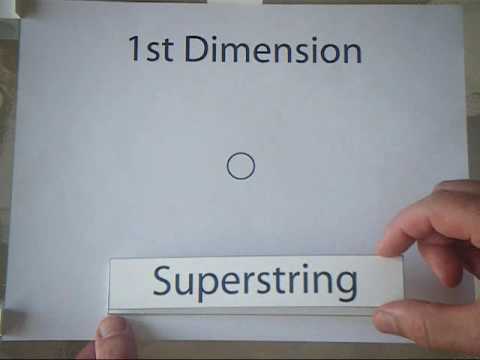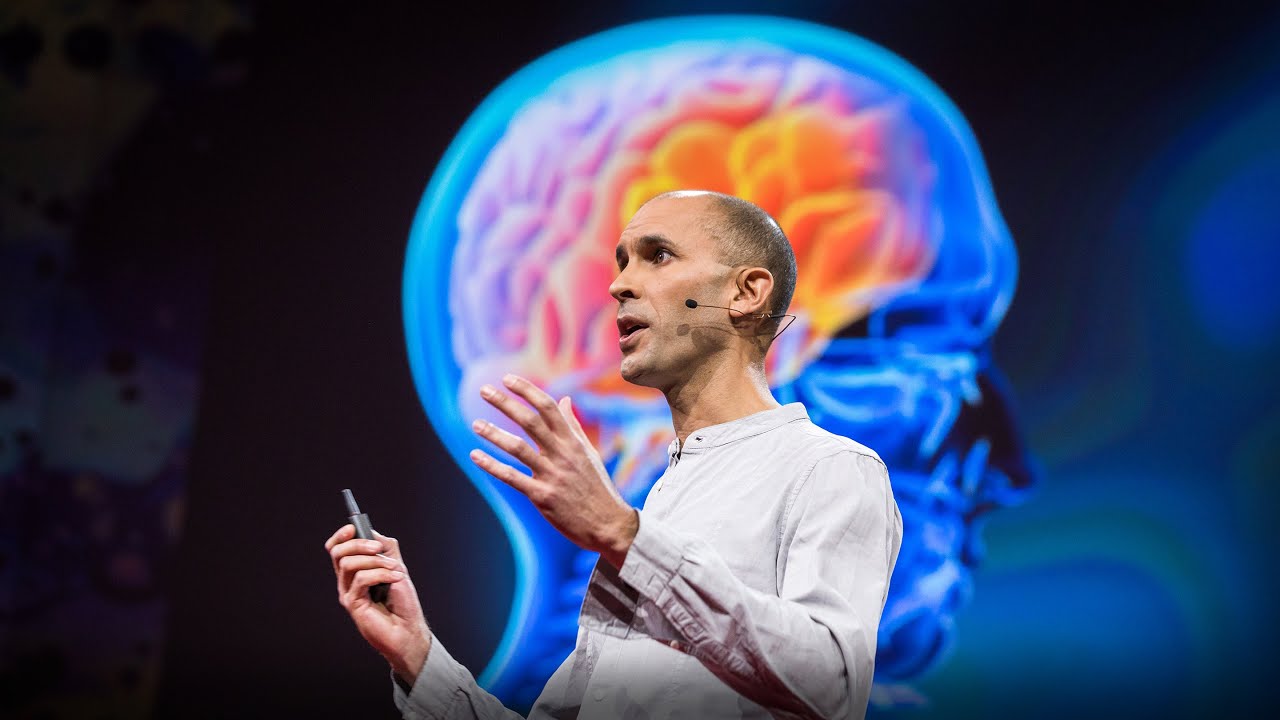Closer To Truth
Is consciousness deepest reality, the ground of being of the cosmos? If the question is “What brought all into existence?” the answer is “Consciousness”. Some say this is a ‘cosmic consciousness’ of which our personal consciousness is a small part. Others, that the ultimate consciousness is God. Others, that consciousness and cosmos are both deep reality.
Free access to Closer to Truth’s library of 5,000 videos: http://bit.ly/376lkKN
Watch more interviews on consciousness: https://bit.ly/3lYyMv1
Donald D. Hoffman is a Professor of Cognitive Science, University of California, Irvine.
Register for free at CTT.com for subscriber-only exclusives: http://bit.ly/2GXmFsP
Closer to Truth, hosted by Robert Lawrence Kuhn, presents the world’s greatest thinkers exploring humanity’s deepest questions. Discover fundamental issues of existence. Engage new and diverse ways of thinking. Appreciate intense debates. Share your own opinions. Seek your own answers.
Source




The basis of his theories are not new, it was expressed by many thinkers before, the idea that reality is a construct of the mind and may not exist independently of perception is a central theme in several philosophical traditions. Here are some key philosophers who have contributed to this view:
1) George Berkeley (1685-1753)
– **Key Idea**: Berkeley is famous for his theory of immaterialism (also known as idealism). He argued that objects only exist to the extent that they are perceived by a mind. This means that reality is fundamentally mental.
– **Major Work**: "A Treatise Concerning the Principles of Human Knowledge"
– **Quote**: "Esse est percipi" ("To be is to be perceived").
2) René Descartes (1596-1650)
– **Key Idea**: Descartes is known for his method of radical doubt, famously concluding that the only thing he could be certain of was his own mind's existence ("Cogito, ergo sum" – "I think, therefore I am"). While he did not deny the existence of reality, his philosophy laid the groundwork for later skepticism about the external world.
– **Major Work**: "Meditations on First Philosophy"
– **Quote**: "Cogito, ergo sum."
3) Immanuel Kant (1724-1804)
– **Key Idea**: Kant proposed that while we can know the phenomena (things as they appear to us), the noumena (things in themselves) are beyond our direct knowledge. Our experiences of reality are shaped by the structures of our mind.
– **Major Work**: "Critique of Pure Reason"
– **Quote**: "All our knowledge begins with the senses, proceeds then to the understanding, and ends with reason."
4) David Hume (1711-1776)
– **Key Idea**: Hume was an empiricist who questioned the existence of a stable, external reality. He argued that our knowledge is limited to our sensory experiences and that we cannot make definitive claims about the existence of things beyond these experiences.
– **Major Work**: "A Treatise of Human Nature"
– **Quote**: "The mind is a kind of theatre, where several perceptions successively make their appearance."
5) Jean Baudrillard (1929-2007)
– **Key Idea**: Baudrillard is known for his theory of hyperreality, where the line between reality and simulation becomes blurred. In the modern world, he argued, we live in a state of hyperreality where symbols and signs replace and obscure the actual reality.
– **Major Work**: "Simulacra and Simulation"
– **Quote**: "The simulacrum is never that which conceals the truth—it is the truth which conceals that there is none. The simulacrum is true."
6) Bishop St. Augustine (354-430)
**Key Idea**: In his introspective explorations, Augustine considered the possibility that the external world could be an illusion and that only the mind is certain. Though not a skeptic in the same sense as modern philosophers, his ideas influenced later thought on the nature of reality.
– **Major Work**: "Confessions"
– **Quote**: "I am certain that I am, and that I know and delight in this. In respect of these truths, I am not afraid of the arguments of the Academicians, who say, 'What if you are mistaken?' For if I am mistaken, I am."
These philosophers, through their various approaches, have contributed significantly to the debate on the nature of reality and the role of the mind in shaping our perceptions of it.
Global mind shift underway! Hoffman ( and Nima Arkani-Hamed) are the Copernicuses (: of the 21st century.
Whose aware of 'Consciousness'? Whose aware of 'I Am' or 'existence'? True reality is beyond even God.
Consciousness is non-computable (per Penrose), but It is fundamental. There is NO mathematical model of C. since IT is the Transcendental Absolute. Shankara went into C. (Brahman) in great philosophical detail and mentioned how C. bridges the gap into our apparent world of space and time. This is covered in verse 21 of Soundarya Lahiri. While you're waiting for the mathematical model, tap directly into and merge with Pure Consciousness. Access "Mahamritunjaya mantra- Sacred Sounds Choir" and listen to it for 5 min per day for at least two weeks.
我思故我在、知識和唯我論
知識是什麼?就是對客觀事實的認識及把握,然而正是“客觀”這一點讓許多人(其中不乏“偉大”的科學家或思想家)誤解和產生爭議,首先“客觀”的約定俗成的意義是徹底錯誤的,它來自我們的生物本能,它(生物本能)讓眾多人肯定“外在於意識的客觀實在”是存在的,然而這種理念卻在邏輯上經不起推敲,但卻沒多少人承認這一點,只因對孤獨的恐懼,事實上各路思想家發展出奧卡姆剃刀剃掉了車庫裡的噴火龍、羅素茶壺或是隱形粉紅獨角獸等,但唯一讓他們改變態度的就是“客觀現實”,在這個實體上他們採取了雙重標準,這讓我不免認為“思想家不過如此”。
如果你感覺被刺到了也沒關係,我很可能是世上極少數誠實探究的人之一,我不帶抑揚頓挫地揭示這一點,我沒有生氣或不爽,但我誠實。
笛卡爾的“我思故我在”是一個思想上的革命,但可惜他自己也沒意識到自己的前半部推論究竟意味著什麼,後半段推論出外在世界和上帝的推論則根本不能直視。我思故我在的結論是來自一個思想實驗,一位惡魔有欺騙、隱瞞和誤導“我”任何事實的能力,但即使是這樣的強大惡魔,卻有一件事是邏輯上絕對不可欺瞞的:就是“被欺騙者的存在”,也就是“我存在”這件事。
我們來分析一下“我存在”這件事,祂的表述是空洞和無限的,因為這個表述所表述的正是一切表述的根源,這個知識要有意義,首先要有一個“我”存在,我們可以發現“我存在”超越了其內容而實存著,也就是不管其內容是什麼,都不影響“我存在”這個宣稱,偶然的規定性不能觸及“我存在”的本質所在,所以才說“我存在”是無限的,因為這個實在在任何狀態下都成立而不變,說空洞就是因為祂那無限的外延。
“我存在”對任何一個觀者和認識者都是個事實,沒有遺漏,所以“我存在”作為一個客觀事實是當之無愧,你可能會認為“我存在”是多個而非一個,但我要說“區分”的基礎在規定性,既然“我存在”是個超越內容的無限實體,自然不存在區分祂的標準,祂其實是一個。
因此唯我論是必然為真的,只是不是一般人想像的那種意義,多數人把宇宙的規定性規範在“我存在”之上,這種錯謬才造成一般人對唯我論的責難,唯我論是站在先驗層級上的絕對事實,由於“我存在”是無限的,因此必然能包含“他心”,對唯我論的錯謬理解則把命題降格為經驗層次,認為“他心”無法被確認存在。
講那麼多,可以回來看知識的意義了,顯然知識要成立,它必須是客觀的,而客觀事實只有唯一一件事:我存在。降級到規定性層次時,就進入了主觀,有限的規定性必然是主觀的,他心無法看你所看,也許規定性相同,但不是“同一個”,你看到的蘋果是你看到的蘋果,他心看到的蘋果是他心看到的蘋果,只是各自呈現在心靈中的知覺“圖標”,儘管再相似甚至一樣,都不可當作是“同一個”。
每個人都生活在自己的主觀現實中,因此真正的知識只有一個:我存在。剝離掉一切主觀的成分以後達到的那個既空無又無限的實體性,就是終極但唯一的客觀性。
The idea that we are living in a simulation has caught on. That idea and its siblings: the world is not real, everything is only in the mind, you are the universe, you are god, etc. Headlines recently blared that three men had won the Nobel Prize for proving that the universe isn't real. Followed shortly thereafter by another round of headlines condemning that initial sensationalism. Nonetheless, I see ideas like this often. Donald Hoffman has made an impression lately with his claim that math proves evolution won't let us see reality. Elon Musk says we almost certainly live in a computer. Physicists have suggested we live on the event horizon of a black hole. There are many others. And I see commenters saying stuff like that all the time.
It makes me ask myself, how valuable is reality to us?
All that my mind can see of the outer world is an impression of its surface features. I know that much exists. But if I'm to believe that the world is not real, what am I being asked to believe about the depths below the surface? Are there depths at all?
When I take a walk, I occasionally like to think about the life going on down below. Ladybugs scaling to the tops of flowers. Lizards darting under leaves. Root systems fanning out and intertwining. I like to believe that all of these things are having their own experiences of the world. But are they? If I say that the reality is an illusion, is life on the forest floor sacrificed? Are the pains and joys down in that world erased?
Or what about the life that is happening inside a star on the other side of the galaxy? Is a star something huge and ancient and complex — or is it a pixel on the screen of the mind? Do my dishes in the cabinet recede into total formlessness when I'm not looking at them? Does a raindrop fall through the sky?
Of course, reality is what it is. I don't get a say. And I bet someone will tell me that I just don't get the idea. And maybe so. The truth is there are a hundred shades of these ideas, and usually they are pretty vague in their description. "The universe is actually a hologram." "The universe is actually a cloud of potentiality." "Everything is made of math." OK, what?
I am not even saying I dispute these ideas. (Though in my heart, I do.) But I really just wonder if others out there also feel there is an overly casual attitude around these ideas. Why is reality abandoned with such . . . abandon? Shouldn't we at least mourn it?
Hoffman sets up a false dichotomy. There is neutral monism, not simply physicalism or idealism
Ok so I thought this was always the point? Why do you explain what you need to do instead of explain what you're going to do and how you're doing it? I like Donald I really do but the things he says doesn't give any insight to the things that need rooted.
Quantum Mechanics itself may be the paradox of predictability.
Predictability itself can be the illusion imposed on this world.
Having a model of a phenomenon doesn't mean to have a descriptive mathematics but a predictive one. And it look so far away from bring there.
It look ls to me so odd the idea of a predictive mathematical model of a subjective experience.
r my diarrhea farts real
So what is consciousness?
Very nice
Haven't the Vedic scriptures been saying this for ages?
›i^
Consciousness is fundamental and some day soon materialistic science will have to deal with it, if there is to be further true progress.
Do Hoffman`s ideas take us closer to an understanding of reality ?
What do we mean by `closer` ? Does science take us closer ? Does meditation take us closer ? Science is corporate, informative, representational meaning. Intuition is individual, still, non-informative meaning. Can that distinction ever be eradicated ?
Can thinking understand itself, or must it be understood from the stillness within which it arises ? Can thinking understand intuition, or does it take intuition to understand thinking ?
How does the subjective conviction of the reality of time arise within an understanding constrained by the nature of life to remain immediate ?
Can the status of time as a contextual authority in understanding be reduced ?
Where does the illusion come from then and does it have a meaning?
If Space-Time is doomed, does that mean the argument of free will vs determinism is also doomed. Both these contradicting theories assume a linear passage of time with one event affecting another or the order of events already having been determined. However, with Prof. Hoffman's idea, if Space-Time is a construct, then what was, what is and what will be is the same… or have I misunderstood his ideas?
The interviewer remains me of Albert Einstein
Let me take the example of God.
God has all the power, all the goodness, all the knowledge 'by default'. He hasn't worked hard for it. It's like a 'free fund'.
Similarly, we have consciousness/free will as a 'free fund'. Thoughts come and go in our mind on their own. I myself don't know what thought will come into my mind, say after 5 minutes, 10 minutes etc. It's a 'free fund'.